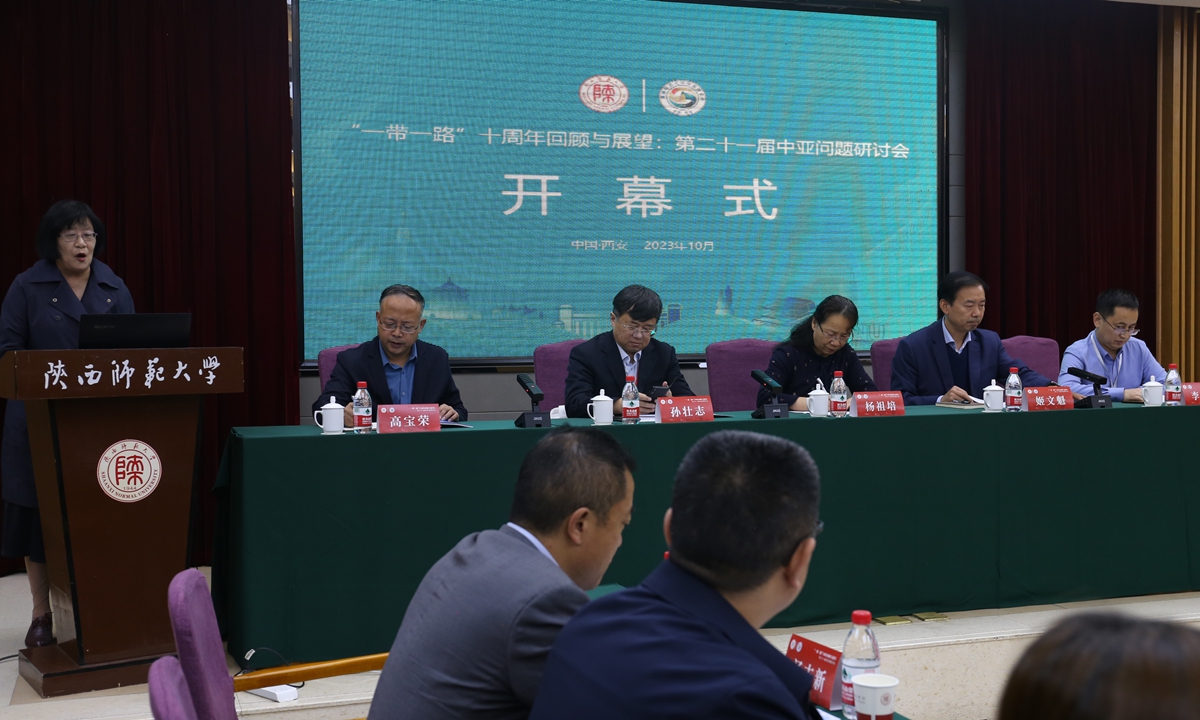
Opening ceremony of the 21st Central Asia Issues Seminar in Shaanxi Province on October 13, 2023. Photo: Courtesy of the Institute of Central Asia, Shaanxi Normal University
China's joint efforts with Central Asia to build a global community of shared future for regional countries have become an important symbol of China's diplomacy in the new era and the promotion of a regional cooperation framework, experts said while participating in a recent academic forum in Shaanxi Province.
The "21st Central Asia Issues Seminar: Review and Prospect of the 10th Anniversary of the Belt and Road Initiative" was hosted by the Institute of Central Asia of Shaanxi Normal University from Friday to Saturday.
The seminar discussed the fruitful achievements of China and Central Asian countries in cooperation over the past decade, eagerly looking forward to the future prospects of working together to build a high-quality development blueprint for the BRI.
Sun Zhuangzhi, director of the Institute of Russian, Eastern European and Central Asian Studies at the Chinese Academy of Social Sciences (CASS), stated that thanks to China's diplomatic practices, especially the China-Central Asia Summit held in May this year, the popularity of Central Asia research has increased.
On May 19, President Xi Jinping chaired the inaugural China-Central Asia Summit in Xi'an, Shaanxi Province. President Xi signed with the presidents of the five Central Asian countries the Xi'an Declaration and adopted the List of Outcomes of the summit. The presidents of the five Central Asian countries spoke highly of the vision of a global community of shared future, the Global Security Initiative, the Global Development Initiative and the Global Civilization Initiative put forth by President Xi.
Deng Hao, secretary-general of the China Center for SCO Studies, said at the seminar that the major power regional relations in Central Asia are undergoing unprecedented changes, with regional diversification and autonomy becoming prominent characteristics and trends in the current Central Asian situation.
China should further develop the Shanghai Cooperation Organization and the BRICS cooperation mechanism through the BRI and the global community of shared future and promote the advancement of the China-Central Asia relationship, said Wu Hongwei, a research fellow at the Institute of Russian, Eastern European and Central Asian Studies under the CASS.
Yang Zupei, vice president of Shaanxi Normal University, pointed out in the opening speech that the seminar aimed to provide forward-looking, innovative and practical suggestions for building a China-Central Asia think tank network and improving dialogue mechanisms.




